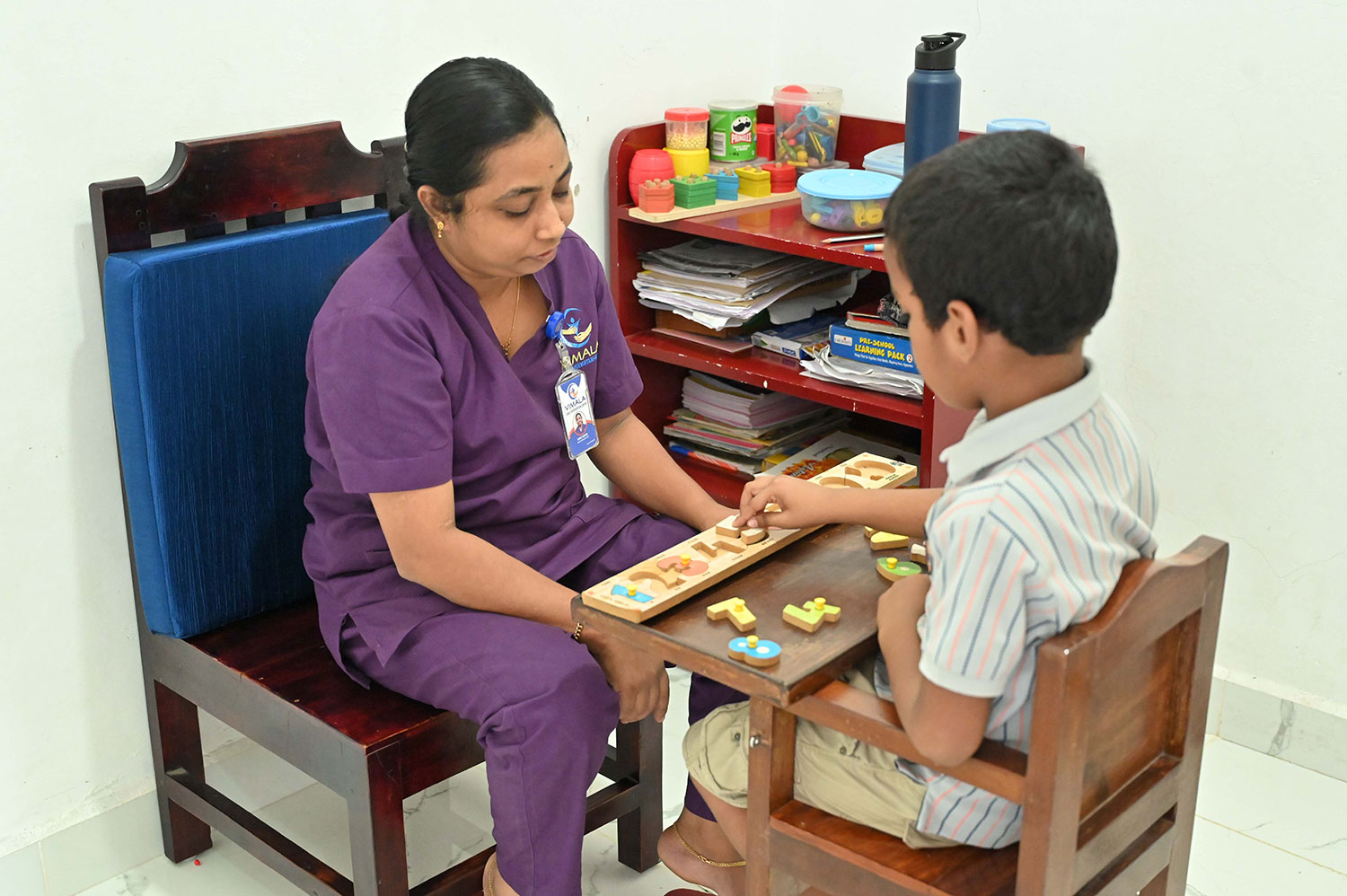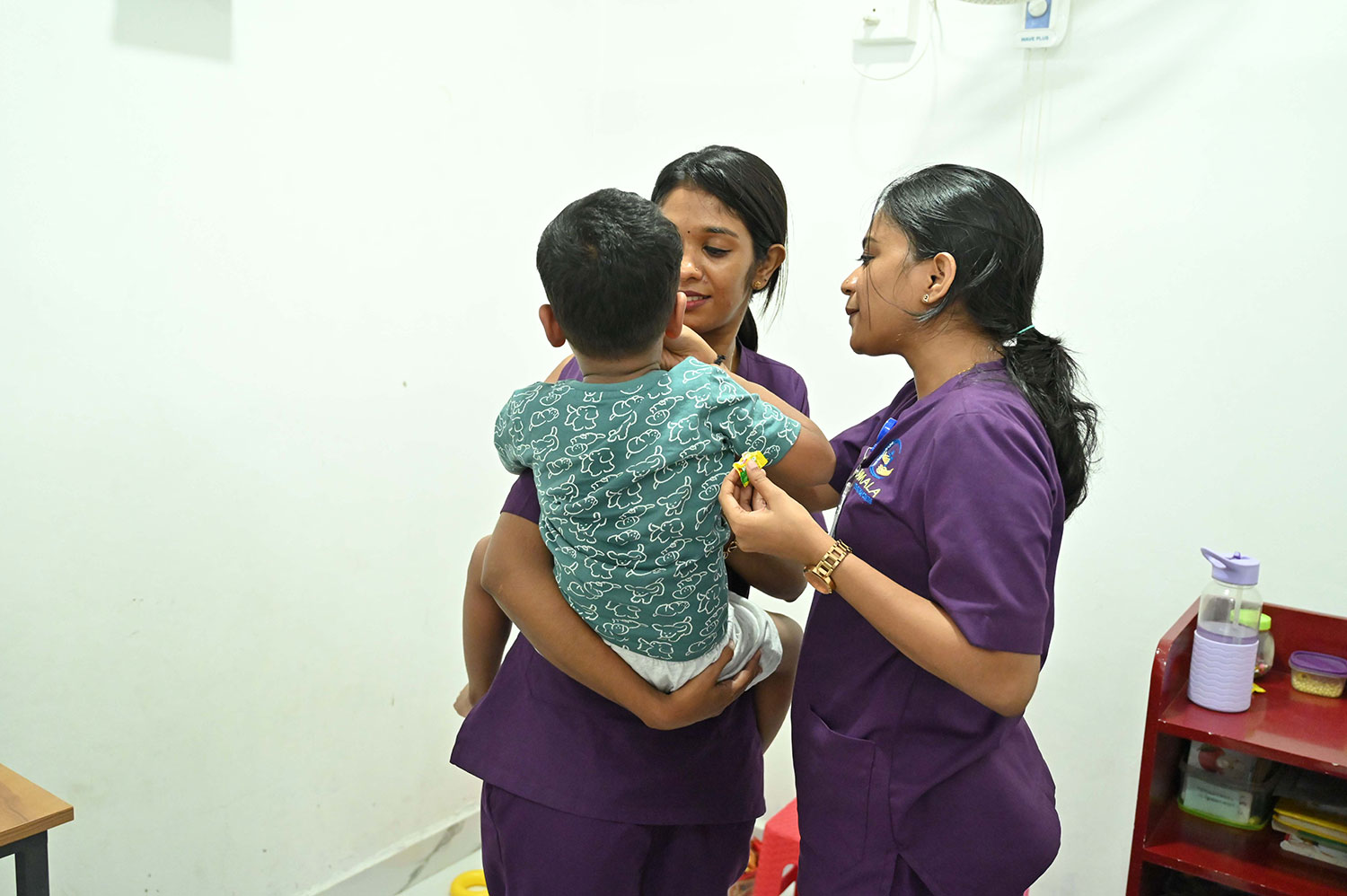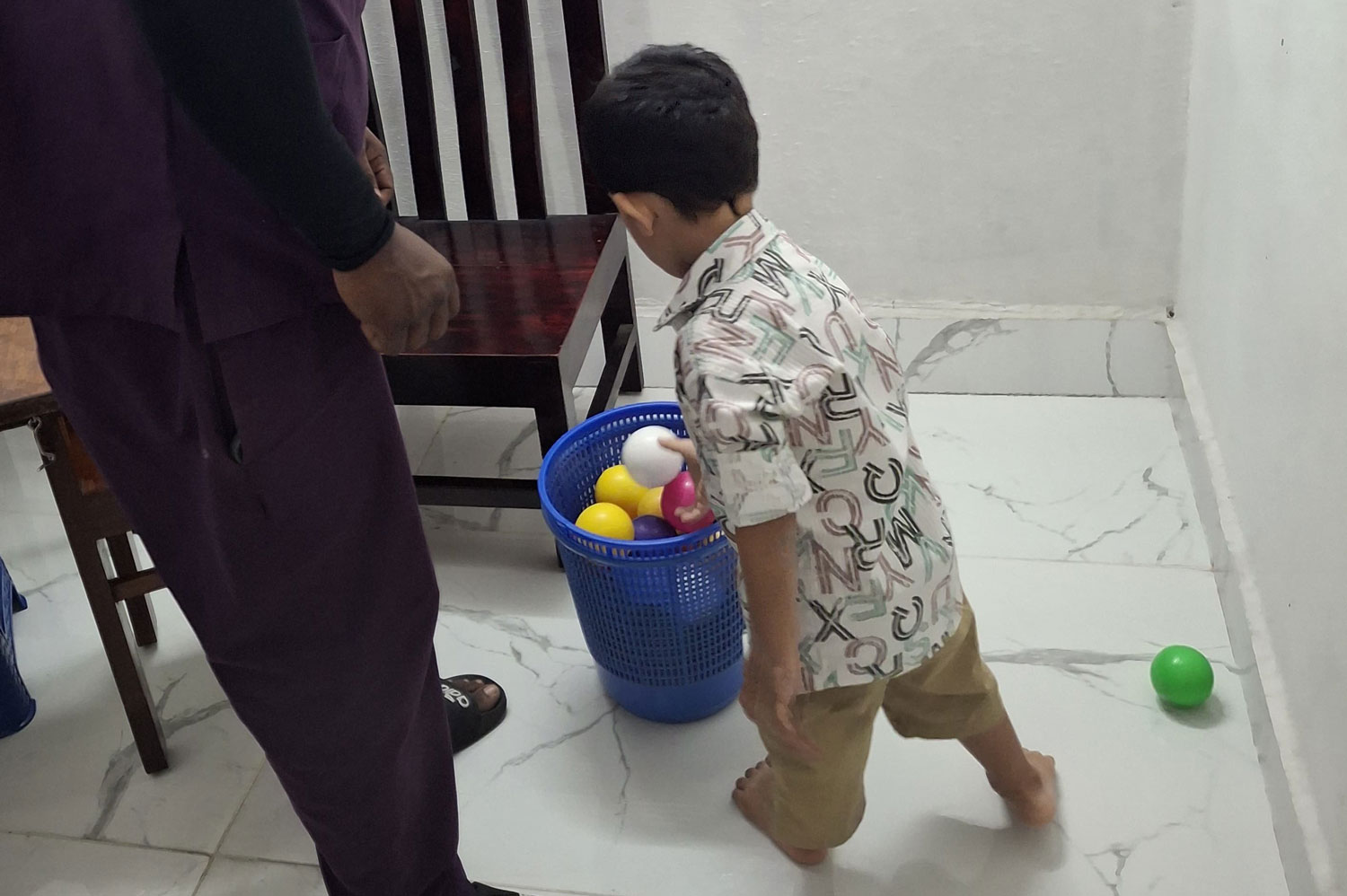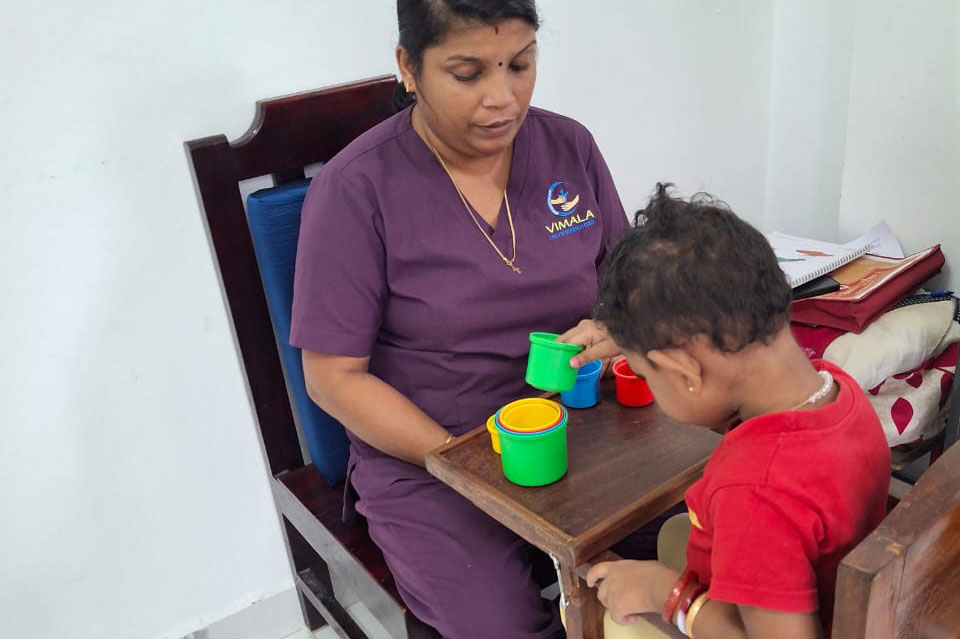
+91 8547939607

veic3puzha@gmail.com

+91 8547939607

veic3puzha@gmail.com




Fine motor skills involve hand and upper extremity movements, such as reaching, grasping, and manipulating objects, along with visual-motor coordination (hand-eye coordination) to coordinate the hands, legs, and body.
Gross motor skills involve large muscles, while fine motor skills rely on smaller muscles. Babies and toddlers need ample playtime and practice to develop the small muscles necessary for fine motor control. Learn more about developmental milestones by age.
Therapeutic intervention for self-care difficulties is crucial as it fosters independence and enhances overall development.
Remember, every child develops at their own pace. If you have concerns about your child’s pre-academic skills, consult a pediatrician or qualified early childhood educator.
Self-care and daily living skills (ADLs) are essential tasks that promote independence and confidence in children, include:
Difficulty with self-care skills can limit other life experiences and school-related tasks. These skills are foundational for independence, and as children grow, it becomes inappropriate for others to assist with them, depending on age.
Therapeutic intervention for self-care difficulties is crucial as it fosters independence and enhances overall development.
Remember, every child develops at their own pace. If you have concerns about your child’s pre-academic skills, consult a pediatrician or qualified early childhood educator.